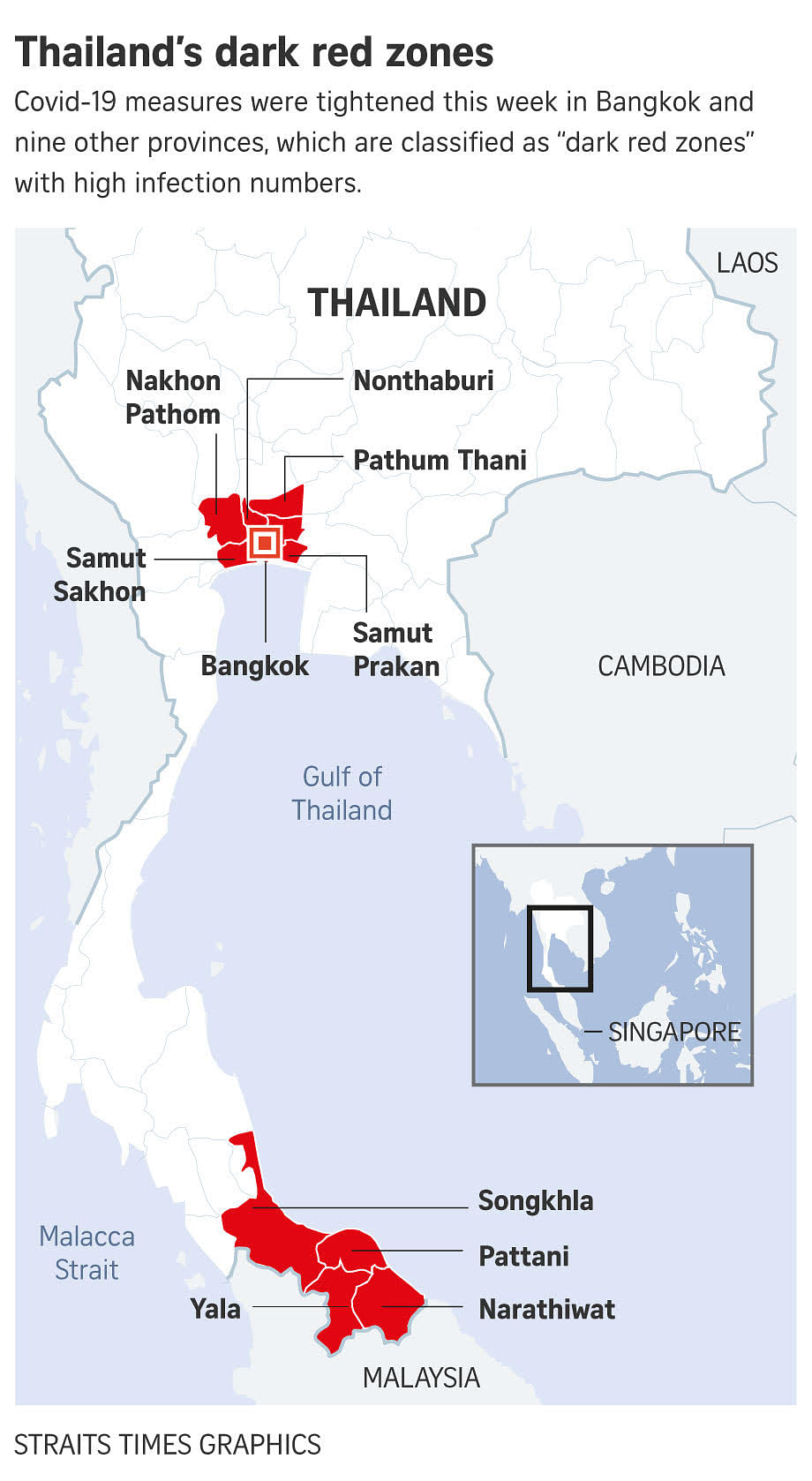Concerns over livelihood outweigh Covid-19 fears in Thailand's deep red zones
Sign up now: Get insights on Asia's fast-moving developments
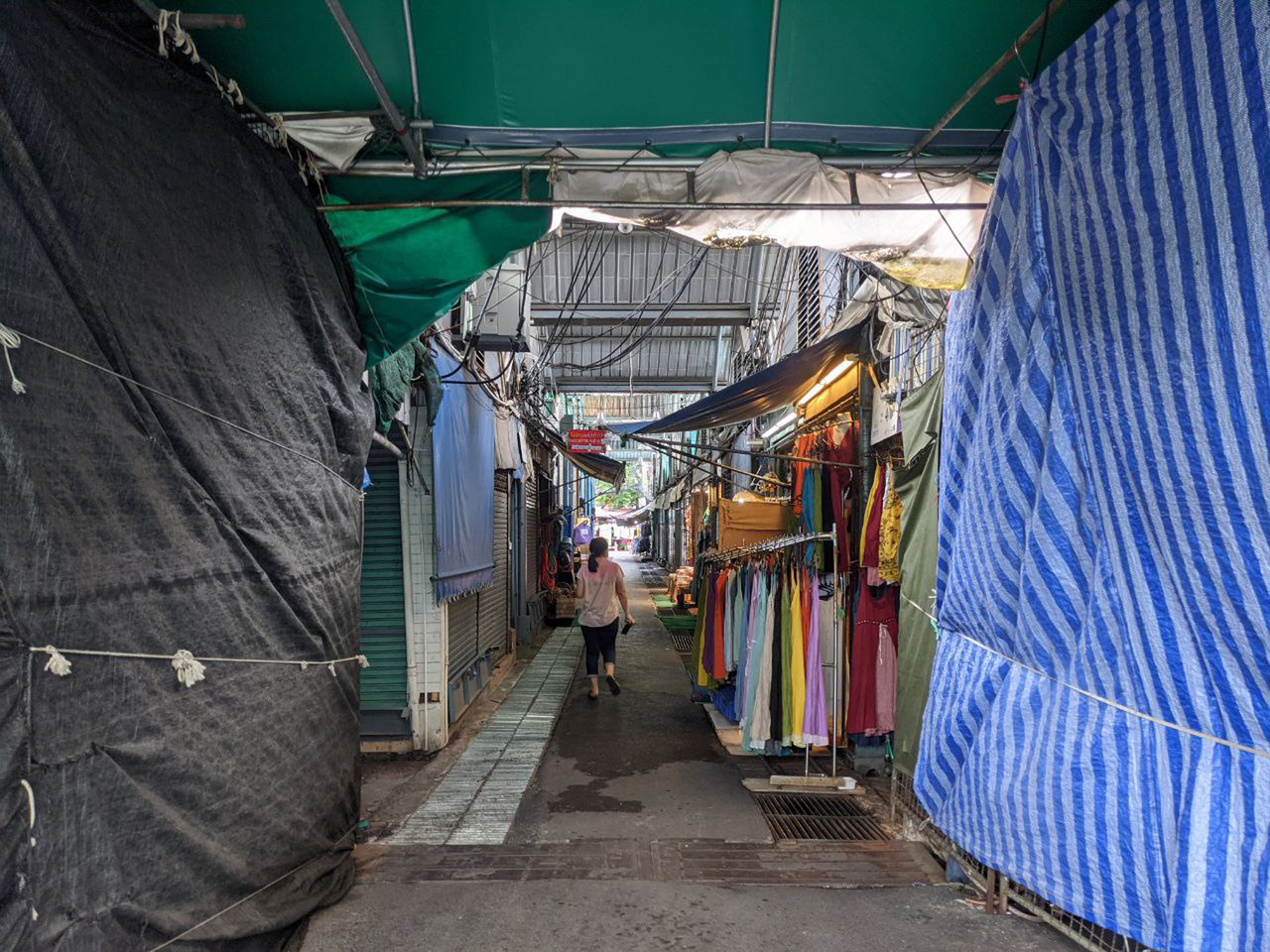
The state of Thailand's tourist industry is reflected in the dim alleyways of the famed Chatuchak weekend market.
ST PHOTO: TAN TAM MEI
Follow topic:
BANGKOK - Lotus Massage Parlour reopened its doors in mid-June and barely a month later, tighter Covid-19 restrictions forced it to shutter again.
"This is the third time this year. I don't know how long I can go on," owner Nawaporn Yotthong, 45, told The Straits Times.
"Are we scared of the virus? No. We're scared that we have no money to live."
She was frustrated in the past when her shop was forced to close.
"But now I don't feel anything," said Ms Nawaporn, against a backdrop of empty faux leather chairs that used to be filled with locals and foreigners seeking respite after hours of shopping along the Sukhumvit stretch before the pandemic.
Recently, Bangkok and nine other provinces have seen steady upticks in daily infection figures, and on Monday (July 12), the authorities clamped down with tighter measures that will last for two weeks.
Shopping malls and non-essential businesses, including massage parlours, are closed, public transport and domestic travel services have had their operations curtailed and more than 15 million people in the affected areas are faced with a daily curfew from 9pm to 4am.
Police checkpoints have also been set up across Bangkok and other provinces to control the number of people leaving the highly infectious zones.
The tough restrictions in the "dark red zones", a term Thailand uses to classify provinces with the highest infection risk, have upturned the lives and livelihoods of many as the nation battles the surging infections and an overwhelmed healthcare system.
Thailand's daily infection figures have hovered near 9,000, and the authorities predict that its most severe wave, which began in April, could see numbers exceed 10,000 cases and 100 deaths soon.
On Tuesday (July 13), the country recorded 8,685 infections and 56 deaths, bringing the total to 353,712 cases and 2,847 fatalities.
Public frustration over the government's handling of the pandemic has also reached a "fever pitch", said Mr Jay Harriman, senior director at strategic advisory firm Bower Group Asia.
Protests demanding Prime Minister Prayut Chan-o-cha's resignation have also returned, with at least three groups taking to the streets over the past weekend.
Thailand had initially resisted a lockdown to avoid hurting the economy and instead imposed targeted curbs on construction worker camps and nightlife venues, where large infection clusters had broken out.
However as case numbers surged, "there was mounting pressure to act quickly", said Mr Harriman, referring to the latest rules.
The government has also urged those who are able to work from home to do so, however this means lower footfall in the city.
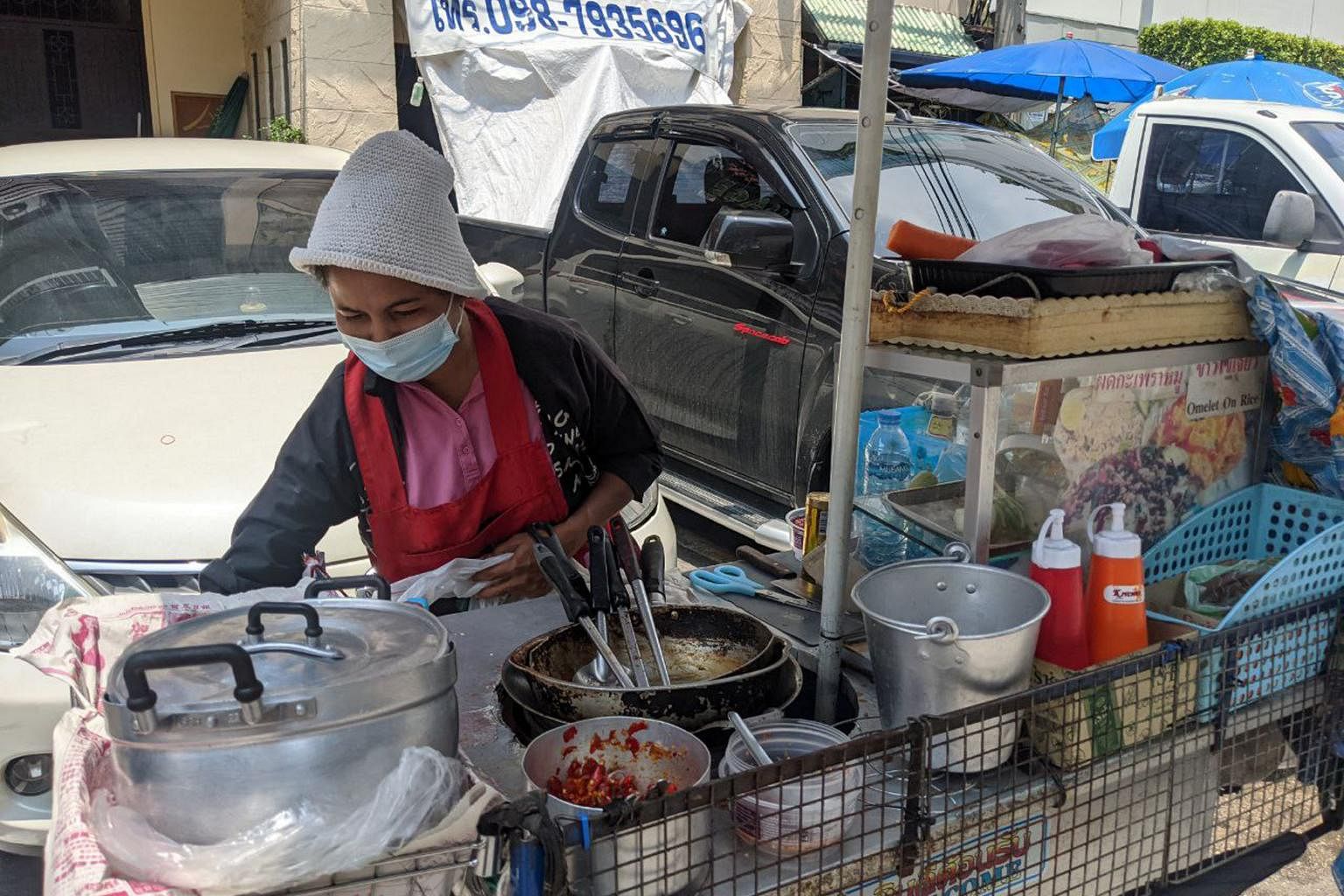
Street hawker Thansamon Wongnok, 46, used to ply her trade along the busy Soi Sukhumvit 19 street, but since the pandemic began, sales have dropped by at least half.
"I used to sell out by lunch time, but now it's 2pm and I still have food," said Ms Wongnok who has been selling omelette fried rice there for five years.
Instead, crowds are gathering and queuing - sometimes overnight - at testing facilities, hospitals and vaccination centres in Bangkok, underscoring the country's strained healthcare system.
Thailand's national vaccine drive has also not met its initial monthly target of 10 million doses. Since February, the country has administered nearly 13 million doses, with only about 5 per cent of its more than 66 million population fully inoculated.
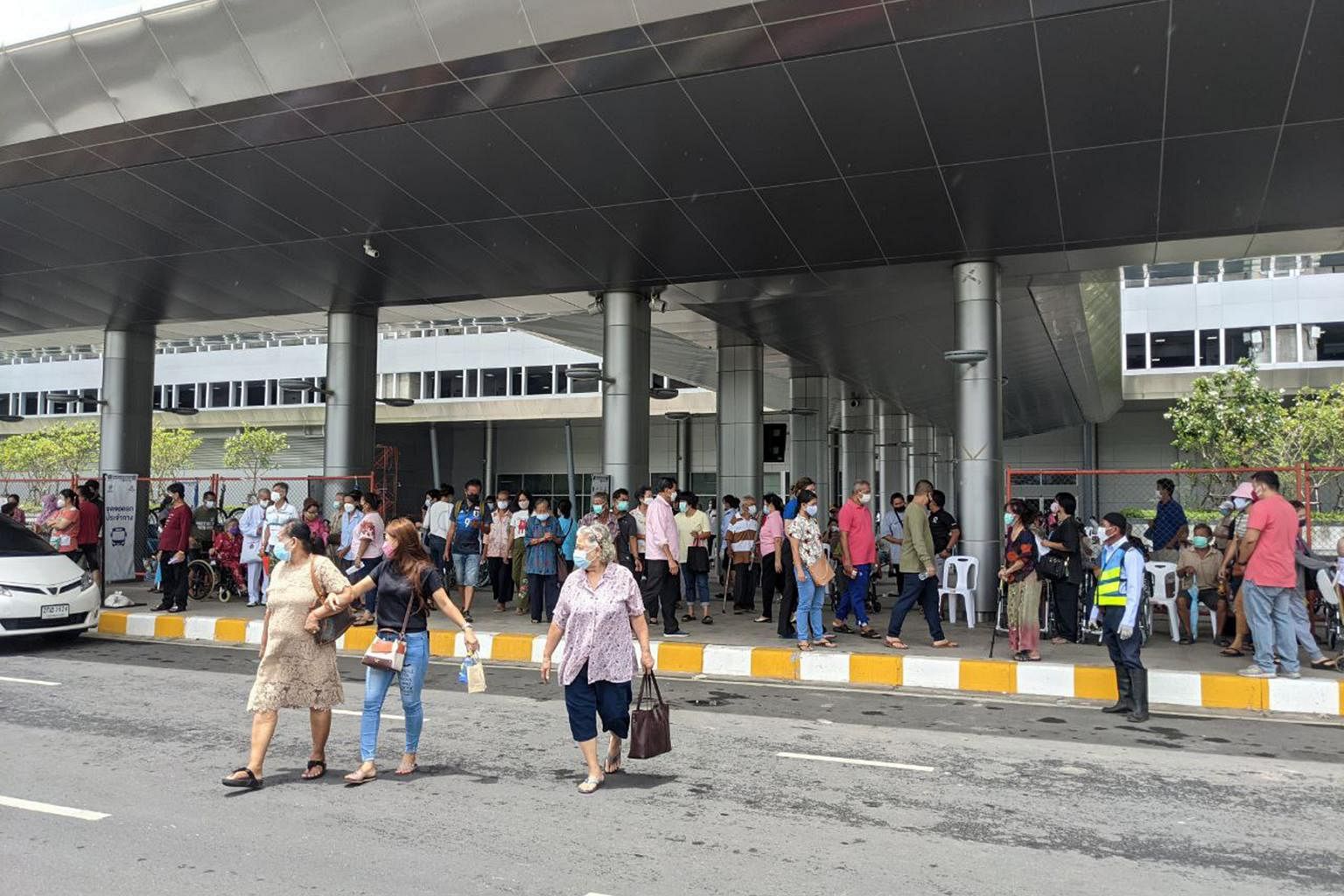
In Bangkok, where infections are highest, hospitals have run out of beds for critically ill patients. The government said it is working to set up more field hospitals and implement a home isolation programme to ease the load.
In July, a local television channel reported that an 84-year-old man committed suicide after his 57-year-old daughter, who had Covid-19, died while waiting to be admitted to the hospital.
The tragedy drew nationwide outrage, as some like media executive Pornchanok S. believe that the government should do more.
"We wear two masks, sanitise our hands, and (maintain) social distance. But we also need effective vaccines," said the 26-year-old.
The country relies heavily on locally made AstraZeneca and China's Sinovac vaccines, the latter of which has faced growing concerns over its effectiveness against more transmissible variants of the virus.
On Monday, Thailand said it would give a shot of AstraZeneca vaccine to those who got their first Sinovac shot, for greater protection.
Demand has also spiked for other vaccines, such as the mRNA shots, that are currently not offered by Thailand's national vaccine drive.
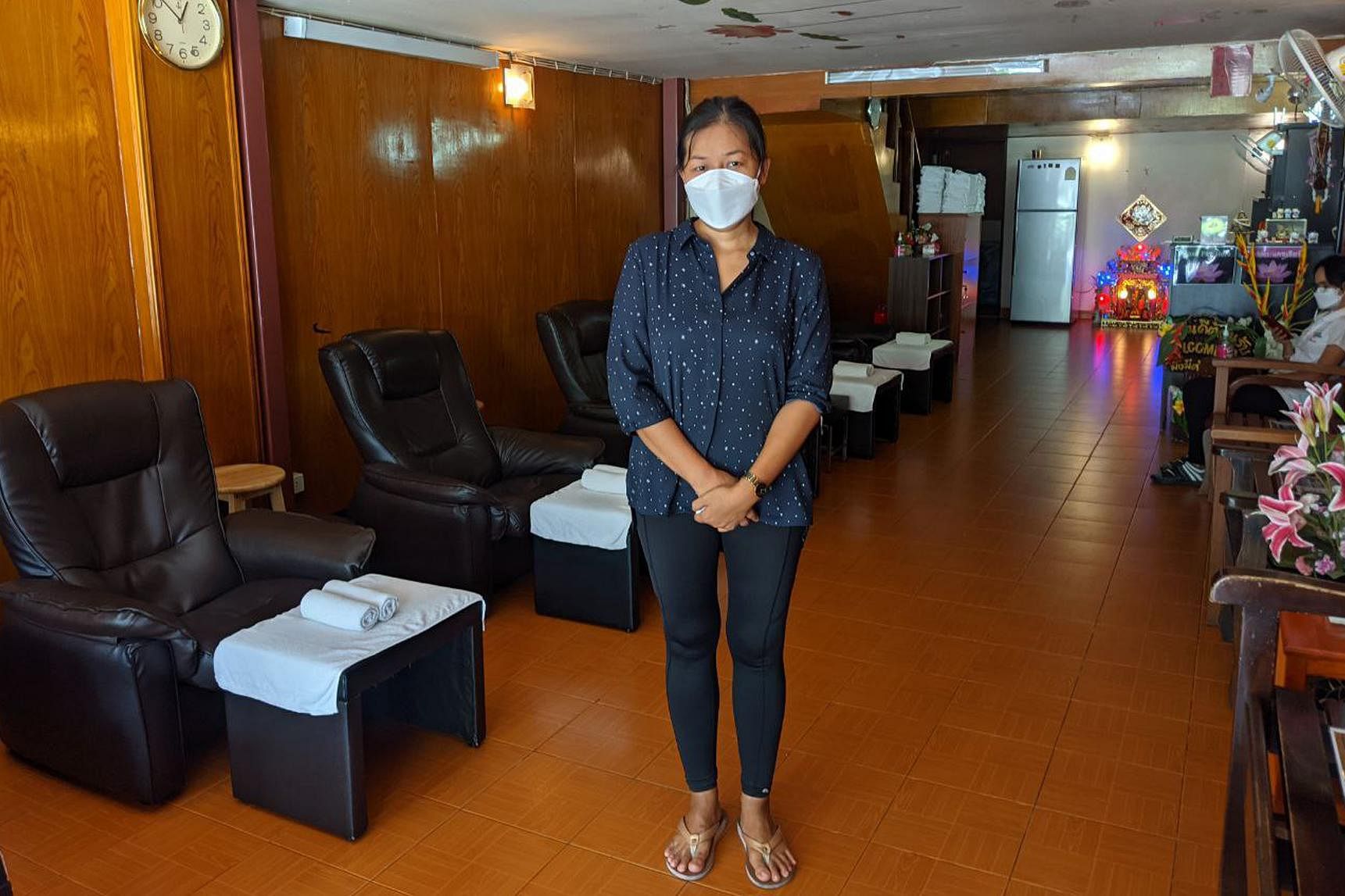
Miss Pornchanok was among the 2.6 million visitors who camped out on e-commerce platform Shopee last week to book one of the 1,800 slots for the Moderna vaccine offered by a private Thai hospital. Each slot of two doses cost 1,650 baht (S$68.50).
She did not manage to get a slot. "I've got both doses of Sinovac, but I feel like I have zero protection," she said.
On Monday, the junction of Asoke and Sukhumvit - formerly the site of perennial traffic congestion - fell quiet as the 9pm curfew set in and public transport ceased operations.
Mr Nuttakit Wongwanich, 35, a freelance photographer who sold his camera earlier this year to drive a rented taxi, said earnings were dismal. He made only 350 baht on Monday.
"I have no profits," said Mr Wongwanich, who usually earns about 1000 baht daily.
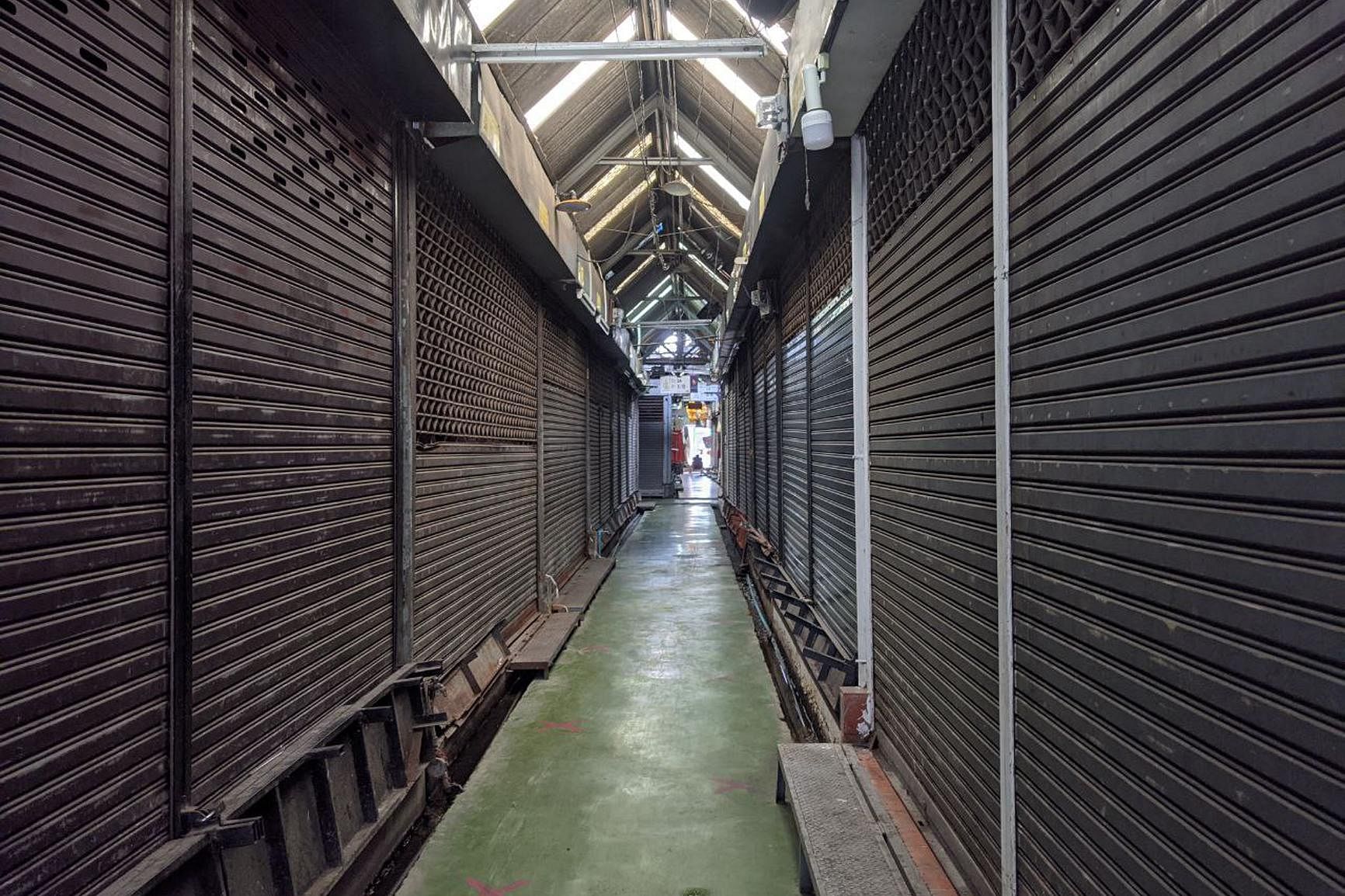
The state of Thailand's tourist industry is reflected in the dim alleyways of the famed Chatuchak weekend market, which The Straits Times visited on the weekend.
The market has largely remained open during the pandemic, but souvenir storekeeper Suphaorn Sintha, 69, estimates that 70 per cent of the shops are closed. "Some temporarily, some for good," she said.
For Mr Pongsathorn Khawatkun, 35, whose family-run flower shop has been at the market for more than two decades, business has dropped drastically.

"People don't buy in bulk anymore. Customers used to spend about 20,000 baht per person, now it's about 200 baht," he said.
Still, Thailand is gunning to open up more tourist destinations in the coming days, with its Prime Minister vowing to fully reopen borders by mid-October.
On Thursday, three resort islands - Ko Samui, Ko Pha-ngan and Ko Tao - are set to reopen in a scheme similar to that of the Phuket Sandbox, where vaccinated tourists will be allowed to roam the island quarantine-free.
